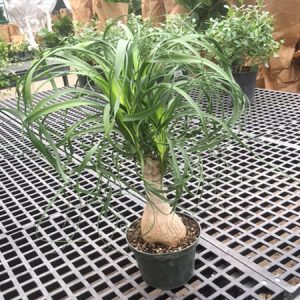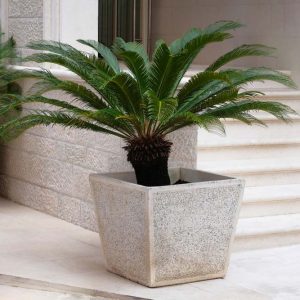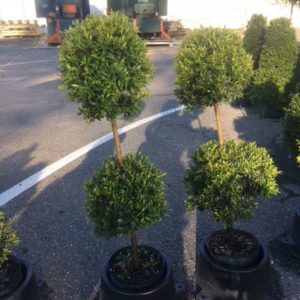Description
Monstera –
There are about 25 species of evergreen, often epiphytic root climbers in this genus. They occur in rainforest in Tropical North, Central and South America and the West Indies. The alternate leaves usually differ in size and shape on young and mature plants, juvenile are usually much smaller and smooth edged, adult leaves are much larger and often perforated. On mature plants, arum like white or greenish cream spathes, enclosing tiny, with star shaped, petalless flowers are held singly from the leaf axils. Grow as a houseplant. The fruit of M.deliciosa taste of pineapple when fully ripe and turns white. Other parts may cause mild stomach upset if ingested, and contact with the fruit may irritate skin.
Indoors grow in soil based potting mix, in bright indirect light with moderate to high humidity. In the growing season, water freely and apply a balanced liquid fertilizer monthly, water sparingly in winter.
Prone to scale insects, spider mites, bacterial soft rot, leaf spots, and a few fungal spots.
M. deliciosa – Fruit Salad Plant – Swiss Chesse Plant – Split-leaf Philodendron – Windowleaf – Ceriman – Mexican Breadfruit – This robust, strong growing climber found from Mexico to Panama and the West Indies reaches 30-70′ feet high. Mature plants produce broadly ovate to heart shaped, long stalked, leathery, glossy, mid to deep green leaves, 12-36″ long. Each leaf is pinnatifid and often perforated with elliptic to oblong holes between the main lateral veins. Juvenile leaves are shorter stalked, much smaller, and smooth edged. Creamy white spathes, 8-12″ long, are borne from spring to summer, they are sometimes followed by edible, cone shaped cream fruit, to 10″ long usually only outdoors.
Zones 14-15





